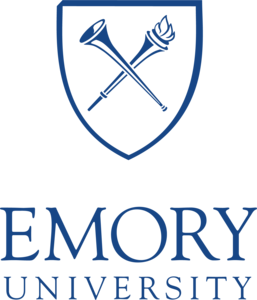Ran Xu

Room N410, Mathematics and Science Center
400 Dowman Dr, Atlanta, GA 30307
My name is Ran Xu. I’m a final-year Ph.D. student in Department of Computer Science at Emory University, co-advised by Prof. Carl Yang and Prof. Joyce C. Ho. Before that, I obtained my bachelor’s degree (with Highest Honors) from the Department of Computer Science, Emory University in 2021, where I worked with Prof. Jinho Choi.
My current research interest focuses on large language models, with a special interest on search (retrieval)-augmented [NAACL’25, COLM’25, NeurIPS’25] and tool-augmented language models [EMNLP’24a, arXiv’25a, arXiv’25b]. I have also worked on synthetic data generation [ACL Findings’24, EMNLP’24b], LLM alignment [arXiv’24, arXiv’25c], and few/zero-shot learning [ACL’23, AAAI’23].
Feel free to drop me an email (ran.xu at emory dot edu) if you have any questions about my research, or want to discuss about potential collaborations.
I am looking for fulltime industrial opportunities, starting from Fall 2025. Feel free to reach out if there is a good fit!
Educations
- Emory University (
2021 - Present ) - Ph.D. in Computational Science and Informatics
- GPA: 3.98/4.00
- Research Focus: Large Language Models, Retrieval-augmented Generation, Agents, Data Synthesis with applications in healthcare.
- Advisor: Prof. Carl Yang & Prof. Joyce Ho
- Emory University (
2017 - 2021 ) - B.S. in Computer Science, Double Major in Applied Mathematics
- GPA: 3.97/4.00
- Research Focus: Natural Language Processing.
- Advisor: Prof. Jinho Choi

Industrial Experience
- Search Intelligence, Google DeepMind (Jun 2025 - Nov 2025)
- Research Intern
- Topic: Agentic Judge Training via Tool-Augmented RL [under review].
- Mentors: Jingjing Chen, Jiayu Ye, Yu Wu, Manager: Hongkun Yu.

- AI Lab, Tencent America (Feb 2025 - May 2025)
- Artificial General Intelligence Research Intern
- Topic: Retrieval-augmented GUI Agents with Generative Guidelines [EMNLP Main Conference].
- Mentors: Kaixin Ma, Wenhao Yu, Hongming Zhang, Manager: Dong Yu.

- Query Understanding Team, Amazon (May 2024 - Oct 2024)
- Applied Scientist Intern
- Topic: LLM Self-training for retrieval-augmented generation [NAACL Main Conference].
- Mentor: Hui Liu, Manager: Qi He.

- Meta Platforms, Inc. (May 2020 - Aug 2020)
- Enterprise Engineer Intern
- Mentor: Zexi Zhang
News
| Sep 18, 2025 | Our paper AceSearcher: Bootstrapping Reasoning and Search for LLMs via Reinforced Self-Play is accepted to NeurIPS 2025 as Spotlight (top 3.2%). See you in San Diego! |
|---|---|
| Aug 20, 2025 | Our paper on improving GUI Agents with tutorials is accepted to EMNLP 2025 Main Conference. |
| Sep 20, 2024 | Three papers on LLMs for Text Retrieval, LLM Agents for Complex Tabular Reasoning and LLM Test-time Adaptation are accepted to EMNLP 2024. |
| May 16, 2024 | Two papers on Synthetic Data Generation and Retrieval Augmented clinical predictions are accepted to ACL 2024. |
| Nov 28, 2022 | Our paper Counterfactual and Factual Reasoning over Hypergraphs for Interpretable Clinical Predictions on EHR received the Best Paper Award (2 in total) at the Machine Learning for Health 2022. |
Selected Publications
- AceSearcher: Bootstrapping Reasoning and Search for LLMs via Reinforced Self-PlayProceedings of NeurIPS, 2025. (Spotlight)
- BMRetriever: Tuning Large Language Models as Better Biomedical Text RetrieversProceedings of EMNLP, 2024.